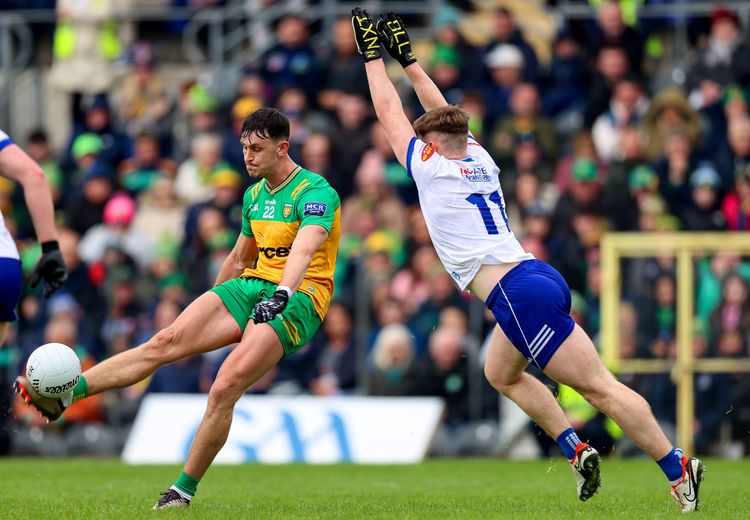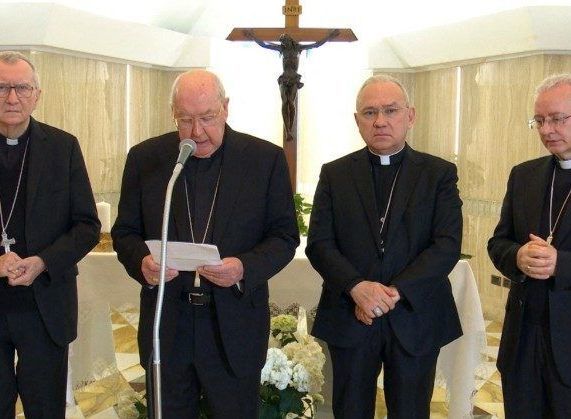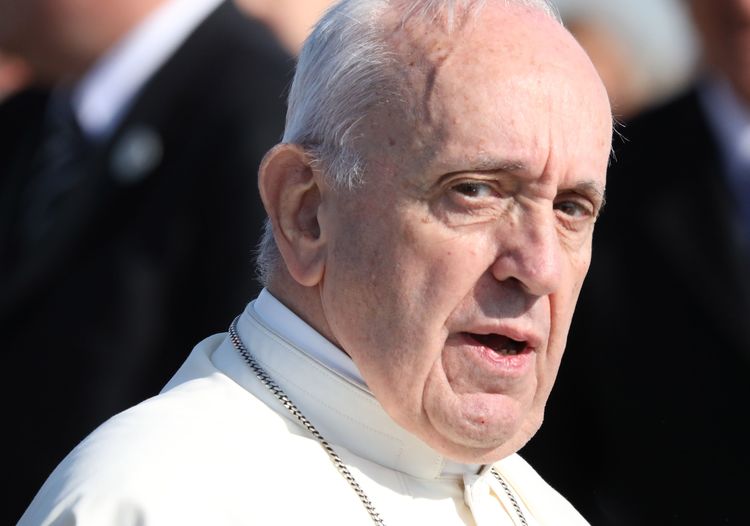By Daniel Neely
In the player this week is “This Day Too: Music From Irish America,” a new recording from the Winches, Terence, Jesse, and Michael, that features instrumental and vocal tracks (both traditional and original) as well as the contribution of a dozen stalwarts of Washington DC’s traditional music community. The result is a loving paean to the community that hits the kind of sweet notes that will resonate with many in Irish America.
Few on the east coast need to be introduced to the Winches as they’ve been so involved in Irish cultural expression for so long. Terence, who plays button accordion here, is an acclaimed poet and songwriter whose work has been anthologized many times and been featured on Garrison Keillor’s radio program “The Writer’s Almanac.” His book “Irish Musicians” is an enduring classic and his song “When New York Was Irish” has been covered widely. Indeed, “This Day Too” is the first album since 2007’s “When New York Was Irish: Songs & Tunes by Terence Winch” to feature new work from the esteemed writer. Jesse is also an accomplished musician (he plays bodhrán, harmonica, and guitar here) who has played with groups like Narrowbacks and artists including Jerry O’Sullivan, the Clancy Brothers and Robbie O’Connell, and Johnny Cunningham, to name a few. He was also the longtime chair of Washington DC’s O’Neill Malcom Branch of Comhaltas Ceoltóirí Éireann (ccepotomac.org).
Terry and Jesse are perhaps best known through their work with Celtic Thunder (no, not that one), the seminal DC-area band they founded in 1977 and with whom they recorded three albums, “Celtic Thunder” (1981), “The Light of Other Days” (1989), and “Hard New York Days” (1995). Over its life, the group included several important musicians (including Linda Hickman and Patrick Ourceau) and is fondly looked upon today by its many fans.
Joining Terry and Jesse on this album is Terry’s son Michael. He plays fiddle and appears throughout, proving to be an important key to this recording. Also important are the musicians the Winches have invited to join them, a who’s-who of local players, including Patrick Armstrong (flute), Tina Eck (flute), Eileen Estes (piano & vocals), Brian Gaffney (vocals), Conor Hearn (guitar), Seamus Kennedy (vocals and guitar), Nita Conley Korn (vocals), Zan McLeod (guitar), Brendan Mulvihill (fiddle), Connor Murray (mandolin, vocals), Dominick Murray (vocal, guitar), and Madeline Waters (cello, vocal). Each has been given a specific role, and each excels in the part s/he plays.
The results are lovely and there are some standout tracks. On the instrumental side, we can start with the album’s opener, “Johnny O’Leary’s / …,” a set of polkas, the first two of which come from the titular O’Leary. The third, “The Ballyvaughn Polka,” is one of Terry’s compositions and is a cracker – it rounds out a nice track. The instrumentation (which includes harmonica) stands out and accentuates some lively playing. Eck’s contribution here is particularly nice, as are all her contributions throughout. Another solid instrumental track is “Earl’s Chair / …,” which features standout playing from Michael Winch and flute player Patrick Armstrong. I also like “Tommy Mulhair’s / …,” a track of reels that features Brendan Mulvihill, because it seems to pull together some of the album’s overarching themes in a most musical and perhaps characteristic way.
While the instrumental tracks are strong, the vocal tracks carry special weight. Songs like the comic “Lannister’s Ball” (Kennedy, v) which parodies HBO’s popular show “Game of Thrones,” appears to have more than a touch of Con O’Driscoll’s influence to it, “Sinning” (Gaffney, v) a song that celebrates what’s written on the tin, and “This Day Too” (Korn, v), a meditation on love and the passage of time – Terry Winch compositions, all – give this album its center. The inclusion of the previously composed “Nelly, My Love and Me” and “Hills of Donegal” are important because the Winch family connections they evoke and how the songs are handled (as explained in the liner notes) give them special meaning. However, the album’s centerpiece is undoubtedly “Childhood Ground,” a slow lament that Estes delivers with great sympathy, which expresses the anxieties that emerged in the wake of the construction of the Cross Bronx Expressway in the 1950s and ‘60s. A civic project that led to urban decay and pushed many away from their homes, is a track that will resonate greatly with those who lived through the experience.
Told through the lens of the Winch brothers, “This Day Too” celebrates Irish-American identity on a couple of different levels. On one hand, it plumbs the memory of a prominent New York Irish family whose formative experiences likely resonate broadly within the Irish American community in a historical sense. But at the same time, by bringing this experience – and more importantly, the family’s music – to life through their current musical cohort, they speak to a more contemporary sense of Irish Americanness, which is something that gives this album a more thorough sense of “journey” than might be expected. It’s one to check out! “This Day Too” is distributed by Free Dirt Records, freedirt.net.









